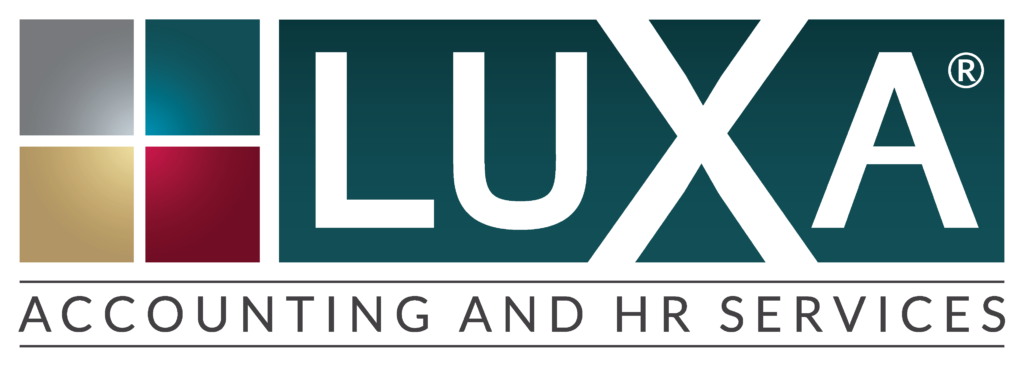
As the owner of a small to medium-size business, you have a lot on your mind. There are concerns about sales and marketing, cash flow, cost cutting and net revenues, taxes and compliance, attracting top talent and retaining your star performers.
Those concerns, in addition to likely keeping you up at night, beg a host of questions. What specifically can you do to boost worker productivity? How can you keep workers engaged and morale high? What, if anything, can you do to prevent the boondoggle of a human resources operation that’s more like a revolving door, with your best employees moving on to better positions and the unsustainable costs of hiring and onboarding new workers?
LET’S GET ACTIVE
There’s something about the invocation of passive voice that leaves a bad taste in your mouth—as in, “Yes, her order was delivered,” or “I’ll make sure the job gets done.” The reason you tend to wince is that there’s something important missing—namely, an actor.
That’s more than a nuanced grammatical distinction. Just as fever and chills are symptoms of a cold or the flu, passive voice is symptomatic of a workplace in which accountability takes a back seat to group think, muddled job responsibilities, ineffectual managers and confused, dispirited workers who don’t think it’s fair that they work hard but the guy in the next office doesn’t—and that’s a serious drain on your ability to grow your business.
‘As Sean Pomeroy, CEO of Visibility Software and human resources thought leader explains, the absence of accountability matters. It means much more than knowing who did what wrong—its negative impact on employee morale, sense of fairness and equality, engagement and (by extension) retention—not to mention productivity—is demonstrable and palpable:
“When no one trusts each other to do the work they’re assigned, employee morale takes a hit. Employees feel like they can’t trust their bosses. They feel devalued. And when employees aren’t valued, they’re less likely to be engaged with their work; the American Psychological Association’s 2018 Work and Well-Being Survey found that 91% of employees who feel valued at their job are motivated to do their best, compared with 41% of those who don’t feel valued.”
That’s the inevitable vicious circle when no one’s accountable for results. Minus accountability, distrust waxes and employee morale wanes. Diminished morale crushes engagement, and lower engagement buries productivity.
WHY ACCOUNTABILITY AND EQUALITY ARE IMPORTANT
The converse of course is that increasing accountability and equality will produce the opposite effect. Held accountable, your workers will more clearly understand your expectations of them, take ownership of results, collaborate with coworkers rather than compete with them, trust that the rules that apply to one apply to all the others, and be motivated to fix problems themselves rather than leaning on others.
But what are the specific benefits of accountability in the workplace? Of course, every business is different, with different employees and different challenges. That said, for most enhanced accountability conveys the following 6 benefits:
- Your employees will work harder: when workers know precisely what you expect, they’ll be more likely to produce the results you want as quickly and efficiently as they can.
- Workplace communication will improve: an agreed upon vocabulary is critical to good communication. In accountability terms, that shared vocabulary consists of specific instructions from managers, honest feedback from employees, both critical to a more productive workforce.
- You’ll create a culture of fairness and equality
- You’ll be more responsive to your customers: in business, your word matters. When you promise a new customer their plumbing will be fixed tomorrow, or that you’ll deliver their new dining room hutch today, they expect you to do so. The more accountable your workers, the more likely they’ll be to meet critical deadlines, improving customer service and trust in your business.
- You’ll meet your business goals: realistic goal setting is important to business success—but it’s hard to set goals when you don’t know whether key tasks will be completed in a timely manner. With greater accountability, you’ll know what your team is capable of, and that means your goals will be more realistic and attainable.
- Your workers will become more effective: your workers can’t be effective in their jobs if they don’t know what you expect of them. Accountability means that every employee knows precisely what you want them to do and that completing the job is their responsibility. Their mistakes will become learning tools, continually increasing their knowledge base and improving their performance. Their successes will become cause for recognition and celebration.
HOW CAN YOU CREATE A CULTURE OF ACCOUNTABILITY AND FAIRNESS?
First, it’s important to know as much about your employees as possible. That means listening to them and soliciting their honest feedback, perhaps using an effective employee satisfaction survey. Second, there are some best practice strategies you can leverage to promote a culture of accountability in your business, including the following 4:
1. ALIGN INDIVIDUAL ACCOUNTABILITY WITH MISSION, VALUES AND GOALS
Your business has (or should have) a strategic plan that guides key decision making. Within that plan are your mission, values and hierarchical business goals. You need to assign those goals, consistent with your mission, to individuals.
For example, one of your higher tier goals might be to increase sales by 10% per year. Subsumed within that objective are lower tier goals like increasing leads, boosting conversions and elevating sales opportunities. The sales goal might be assigned to your chief marketing officer who then assigns lead, conversion and sales goals. You and your direct reports need to make clear precisely the results you expect from each assigned employee.
2. SCHEDULE REGULAR PROGRESS MEETINGS
It’s not advisable, especially with newer workers, to simply assign a results-driven goal to an employee and let him or her “run with it.” At the same time, you need to delegate some level of authority to motivate your employees and create a sense of ownership.
This can be a delicate balance to strike. For optimal results, schedule occasional progress report meetings with each employee. Use that time to garner the information you need, listen to feedback and help your workers make necessary course corrections. You might be surprised to find highly motivated employees suggesting new or novel strategic approaches that move you closer to completion of the task.
3. LINK ACCOUNTABILITY TO CAREER DEVELOPMENT
It’s only human for employees to question “what’s in it for me?” To boost engagement and retention, in collaboration with managers and workers, develop a career path within the organization for each employee. Assign them responsibilities consistent with both your business goals and their career development needs. Your workers are more likely to be accountable if the results they achieve help both you and them.
4. ACKNOWLEDGE AND CELEBRATE ACHIEVEMENT
Something as simple as “good job” or “you really knocked the ball out of the park with this one” will go a long way to boosting employee morale, loyalty and sense of fairness. In addition, however, you should also formally and publicly celebrate your employees’ achievements. You might think your workers will see such acknowledgement as perfunctory or gratuitous—in most cases, however, they’ll be grateful for your appreciation and reward you with a renewed commitment to future achievements.
CONCLUSION
Transforming your workplace culture from one of passive disengagement to one in which every employee is committed, productive and accountable and believes your business is fair and equal can be a game changer for your business, boosting engagement, retention and productivity. Said differently, accountability is a critically important goal—but it’s not the only one, and there are experienced businesses that can give you the advice and guidance you need to achieve the most important of them.
To learn more about the ways our outsourced HR, accounting and payroll administration services will help your business achieve its key objectives, contact us today.


